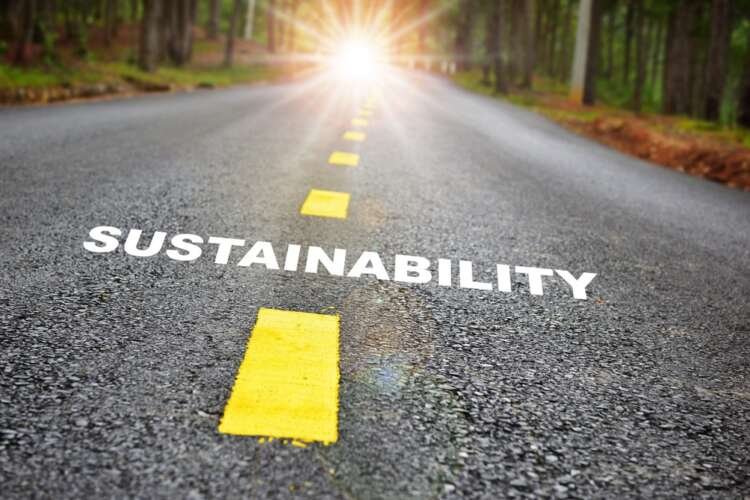Is sustainability the secret to a brighter future?


By Matt Clementson, Enterprise Head of Sales UKI, SAP Concur
Matt Clementson, Enterprise Head of Sales UKI, SAP Concur
Now that business travel has resumed, sustainability is top of mind for travel managers. As demand for higher levels of sustainability grows, businesses will be further interrogated about sustainability policies from third parties, management and employees to supply chain partners and external stakeholders. Fortunately, UK businesses have already made great strides in their sustainability policies, especially with green business travel programmes.
In fact, SAP Concur’s latest research revealed that UK businesses are further along their sustainability journey than their European counterparts, with 99% considering sustainability in their travel policy. The sustainability agenda is being driven by a number of different groups within UK businesses including senior leadership (70%), employees (53%) and those responsible for corporate travel (48%).
Now that businesses are working to rethink and rebuild travel programmes for a sustainable, post-pandemic world, it’s a great time for travel managers to establish new practices and policies that embrace sustainability, duty of care and convenience.
Enabling the road to sustainability
There are many barriers to overcome on the route to sustainability. From prioritising fuel-efficient flights to opting for virtual meetings, managers and employees are having to rethink travel habits and look at travel through a sustainability lens.
UK businesses are also working hard to increase understanding of business travel sustainability amongst employees, but it isn’t just a sustainable mindset that exists within these businesses -they are taking active steps to ensure the sustainability of their corporate travel programmes. When it comes to considering the environmental sustainability of third-party supplies in the context of business travel, 74% of UK organisations are doing a good job compared to 64% of those in Europe.
Internal communication campaigns (70%), regular communication with business travellers for the duration of their trip (68%) and formalised training and education programmes (64%) are amongst some of the tactics that organisations are using to drive understanding of sustainability policies.
Technological solutions for greener business travel
As part of the drive to sustainability, in the future we will see an increase in purposeful travel, where business travellers will only travel if it is essential. Businesses will be taking into account the method of transport they are using and ensure that it is the most sustainable option. Moving forward, businesses should focus on continuing their ongoing programme to support their travelling employees in making greener choices – while supported by the right tools and technologies to help them make informed decisions.
Technology tools that facilitate the measurement and implementation of more sustainable programmes will be vital to organisations in achieving this. SAP Concur offers Thrust Carbon to customers, a useful tool that gives our customers visibility of the components for their journey. SAP Concur data is applied to all modes of transports, including air and travel, as well as accommodation. It then provides impact support for customers, allowing them to implement regulations based on the results.
This can be useful for travel managers and business travellers to evaluate travel options, helping them to gauge whether a journey is completely essential. This tool can provide alternative booking arrangements for transport or hotels if it affects carbon footprint, employee wellbeing or company budget.
There are many attributes to take into consideration for tracking emissions and using a booking tool will give employees will have greater visibility and can make better informed decisions about their travel options, as they can see how much impact their travel will have before they book any trips.
As we find out footing in this new normal post-pandemic world, we will see an increase in purposeful travel. There has always been an underlying reason for travel, and in some cases, it will make sense to meet with people digitally, but this will not be the case for everything. Employees will choose eco-friendly routes to travel by, worked out by their booking tools, which will help them to manage their CO2 emissions accordingly.
Sustainability refers to the ability to maintain or improve certain processes or systems without depleting resources or causing harm to the environment, ensuring that future generations can meet their needs.
Corporate travel involves travel undertaken by employees of a company for business purposes, including meetings, conferences, and client engagements, often requiring careful planning and budgeting.
Green business travel programs are initiatives designed to reduce the environmental impact of corporate travel by promoting sustainable practices such as using fuel-efficient transportation and minimizing carbon footprints.
Technology plays a crucial role in sustainable travel by providing tools and platforms that help businesses track emissions, optimize travel choices, and implement more eco-friendly practices.
Purposeful travel refers to travel that is undertaken only when necessary and with a focus on sustainability, ensuring that each trip serves a clear business purpose and minimizes environmental impact.
Explore more articles in the Business category











